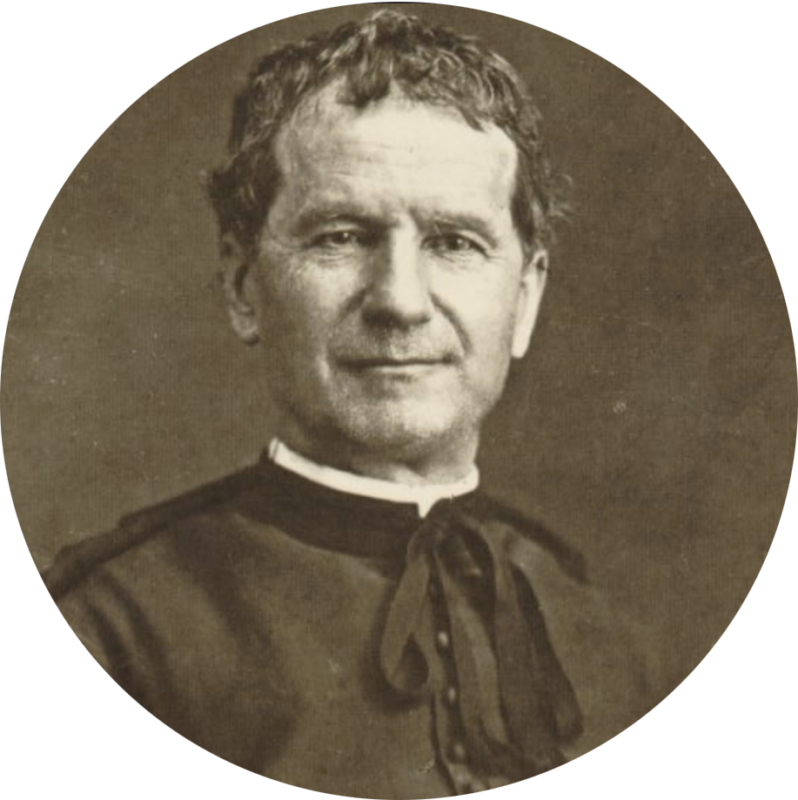
On January 31, we celebrated the feast of St. John Bosco, who embodied the twin virtues of humility and magnanimity. While magnanimity enables one to seek with confidence to do great things in God, humility keeps one grounded. Understanding these virtues’ complementary gives shape to a person’s character, which inspires those who interact with them.
Magnanimous, humble people can recognize the virtues and talents of those around them and help them flourish for the good of the mission. They are not threatened by the gifts of others but instead find ways for them to thrive. They rejoice more in the accomplishment of others. Magnanimous people have their eyes fixed on the “treasure in heaven” and recognize that their gifts of nature and grace come from God. This does not mean their heads are in the clouds. Instead, they live and possess a sense of humor. In sum, they are led by the witness of their lives and are harder on themselves than others.
The opposing twins of magnanimity and humility are ambition and false humility (pride). While they may look similar, they can reap discord, contention, and others feel forced instead of led. It is often challenging to work with them as they fail to listen, deflect correction, steamroll their ideas, and mask collaboration. Yes, tasks may get things done, but at what price?

Jesus taught us how to discern the Spirit at work in people’s lives. He said, “You will know them by their fruit” (Matthew 7:16). Indeed, St. John Bosco was an extraordinary man of God and spent his entire life in the service of the Gospel. He had plenty of enemies who attempted to kill him and thwart his work, but he remained steadfast. God certainly watched over his faithful son, as a mysterious dog, Grigio, would appear and protect him from danger. He was magnanimous and humble and sought to bring as many people as he could into a relationship with God. His mottos—“Give me souls and take away the rest.”
Here is a sampling of his works, which continue until today.
On December 18, 1859, John Bosco founded the Society of St. Francis de Sales (now popularly known as Salesians of Don Bosco), who started by working with abandoned boys. Twelve years later, in 1871, he founded with Sr. Mary Mazzarello “Daughters of Mary Help of Christians” to work for underprivileged girls’ upliftment. In 1875, he expanded into publishing by establishing the Salesian Bulletin, which continues to be published in about thirty languages. Finally, in 1876, he founded a lay organization, the Association of Salesian Cooperators, which worked for the poor’s benefit. He died in 1888 at the age of seventy-two.
View the timeline on the life of St. John Bosco HERE
From a letter by Saint John Bosco, priest
I have always labored out of love.
First of all, if we wish to appear concerned about the true happiness of our foster children and if we would move them to fulfill their duties, you must never forget that you are taking the place of the parents of these beloved young people. I have always labored lovingly for them, and carried out my priestly duties with zeal. And the whole Salesian society has done this with me.
My sons, in my long experience very often I had to be convinced of this great truth. It is easier to become angry than to restrain oneself, and to threaten a boy than to persuade him. Yes, indeed, it is more fitting to be persistent in punishing our own impatience and pride than to correct the boys. We must be firm but kind, and be patient with them.
I give you as a model the charity of Paul which he showed to his new converts. They often reduced him to tears and entreaties when he found them lacking docility and even opposing his loving efforts.
See that no one finds you motivated by impetuosity or willfulness. It is difficult to keep calm when administering punishment, but this must be done if we are to keep ourselves from showing off our authority or spilling out our anger.
Let us regard those boys over whom we have some authority as our own sons. Let us place ourselves in their service. Let us be ashamed to assume an attitude of superiority. Let us not rule over them except for the purpose of serving them better.
This was the method that Jesus used with the apostles. He put up with their ignorance and roughness and even their infidelity. He treated sinners with a kindness and affection that caused some to be shocked, others to be scandalized, and still others to hope for God’s mercy. And so he bade us to be gentle and humble of heart.
They are our sons, and so in correcting their mistakes we must lay aside all anger and restrain it so firmly that it is extinguished entirely.
There must be no hostility in our minds, no contempt in our eyes, no insult on our lips. We must use mercy for the present and have hope for the future, as is fitting for true fathers who are eager for real correction and improvement.
In serious matters it is better to beg God humbly than to send forth a flood of words that will only offend the listeners and have no effect on those who are guilty.


You May Also Like
Download Virtue Wallpapers
Interactive Virtue Tree
Raised in Grace